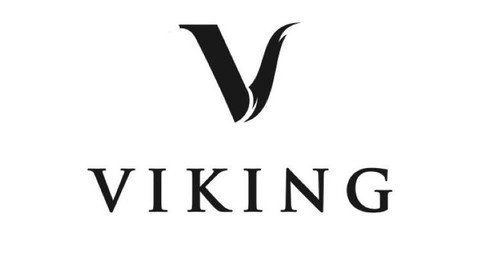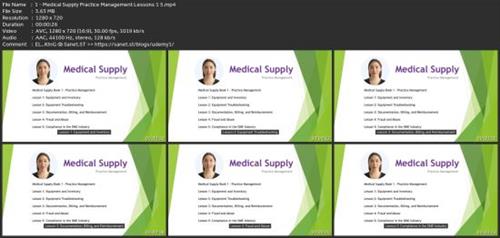
Published 10/2024
MP4 | Video: h264, 1280x720 | Audio: AAC, 44.1 KHz
Language: English | Size: 1.19 GB | Duration: 1h 39m
Practice Management
What you'll learn
Lesson 1: Equipment and Inventory
Lesson 2: Equipment Troubleshooting
Lesson 3: Documentation, Billing, and Reimbursement
Lesson 4: Fraud and Abuse
Lesson 5: Compliance in the DME Industry
Requirements
A desire to learn and / or know more about practice management in the medical supply business
Description
As a Medical Supply Professional, your role involves interacting with patients and caregivers on a daily basis. This requires you to take on multiple roles throughout the day, such as acting as a warehouseperson, mechanic, billing and accounting clerk, and compliance manager.This course aims to demonstrate the interconnection between these various disciplines and equip you with the knowledge needed to ensure compliance with state and national regulations within the DME industry.Medical Supply: Practice Management is a comprehensive guide for healthcare professionals, medical supply companies, and health services administrators. It outlines the key principles of practice management, from analyzing financial and clinical data to developing strategies for cost containment and revenue optimization. It also discusses the various regulatory, compliance, and quality assurance issues associated with the medical supply industry. The book's main objective is to provide practitioners with the resources and tools they need to create a successful and profitable medical supply business. It emphasizes the importance of creating a well-organized, efficient, and cost-effective operation in order to maximize returns and reduce waste.Certified DME Specialists play a critical role in the medical department and should try at any cost to win the trust of all stakeholders, including the clients. The only way to gain trust is by acting in a way that is in line with the set rules and guidelines. On the same, companies in all industries should regulate operations by formulating and implementing policies and laws that discourage misconduct. There should also be sanction methods to create a ethical environment. Compliance officer need to be given power and authority to monitor and oversee the execution of the compliance program. Proper communication is another important component which helps in mitigating irregularities such as waste, fraud, and abuse. Employees who fail to comply with the standards of conduct, applicable statutes, and policies must be exposed to a disciplinary action. The instances in question must be documented to guide investigations and audits.
Overview
Section 1: Introduction
Lecture 1 Medical Supply Practice Management - Lessons 1 -5
Section 2: Medical Supply Part 1
Lecture 2 Medical Supply Practice Management - Part 1
Section 3: Medical Supply cont. Part 2
Lecture 3 Medical Supply Practice Management - Part 2
Section 4: Medical Supply Practice Management - Part 3
Lecture 4 Practice Management
Section 5: Medical Supply Practice Management - Part 4
Lecture 5 Practice Management
Section 6: Medical Supply Practice Management - Part 5
Lecture 6 Practice Management
Section 7: Medical Supply Practice Management - Part 6
Lecture 7 Practice Management
Section 8: Medical Supply Practice Management - Part 7
Lecture 8 Practice Management
Section 9: Medical Supply Practice Management - Part 8
Lecture 9 Practice Management
Section 10: Medical Supply Practice Management - Part 9
Lecture 10 Practice Management
Medical Supply Professionals
Screenshots

rapidgator.net:
ddownload.com:

 News
News